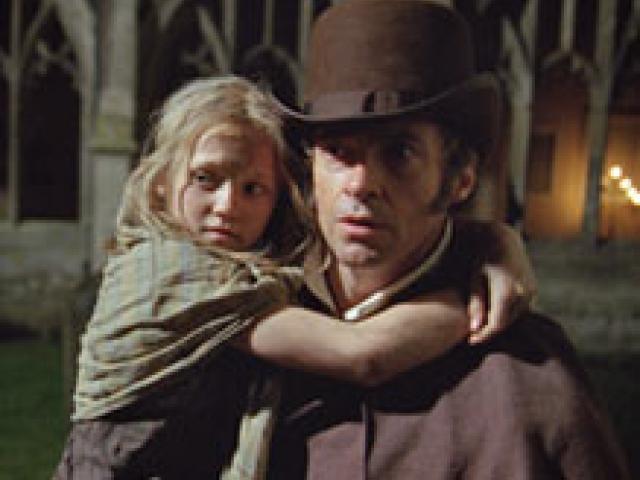Hugh Jackman, Anne Hathaway on God and Les Miserables

Favorite Quote
"He was reminding everyone at the time of the Jesus Christ example, which is to love people."
- Hugh Jackman
Victor Hugo's historical novel Les Misérables is the basis of one of musical theater's biggest successes. Producer Cameron Mackintosh opened his first London show featuring the celebrated score by French composer Claude-Michel Schönberg and lyricist Alain Boublil (adapted into English by Herbert Kretzmer) in 1985. Les Miserables has been on the London stage and reaching a worldwide audience ever since.
This Christmas Day, moviegoers will get the chance to experience Hugo's powerfully redemptive story on the big screen with the release of Oscar-winning director Tom Hooper's film adaptation. Led by stage and screen actor Hugh Jackman as ex-convict Jean Valjean, the film's co-stars include Russell Crowe as Inspector Javert, Anne Hathaway in the role of Fantine, Amanda Seyfried as Cosette, Eddie Redmayne as rebel student Marius, Samantha Barks as Éponine and Sacha Baron Cohen and Helena Bonham Carter as Master and Madame Thénardier.
Les Miserables' ensemble cast breathes life into a spiritually significant story told through music. Every song in Les Miserables' lends to the story's affecting plot. But, one of musical's most powerful and culminating lyrics has to be the line, “To love another person is to see the face of God.” When asked their personal reactions to such an enlightening statement, members of the cast shared these thoughts:
Amanda Seyfried: It's the most profound thing I think that you could ever hear someone say, and for it to be sung, it's just that much more powerful. It's what we're left with at the end, and that's why I think Les Mis' has been such a phenomenon for so many years because of the theme, what it's about really, in the end, love.
Samantha Barks: It's that theme of redemption and hope. For my character, growing up in a world of the Thénardiers', however hilarious they are, they're very twisted, dark people. So for a character like Éponine, who's never really experienced good people, when she meets somebody like Marius who is... he's a good man, and that kind of affect on her and love actually redeeming her. She does choose the natural path to her, which is—she's a criminal; it's not the correct path to go down. But in the end, she does do the right thing because I think love has actually redeemed her and made her—although her ending is tragic, she does do the right thing.
Eddie Redmayne: Relating it to Claude-Michel's score, that tune that Colm Wilkinson, as the bishop, sings to [Jean Valjean], at that moment in which God has placed into Jean Valjean's life for the first time, how that recapitulates throughout the piece. The bit when I saw the film that absolutely stunned me was when [Jean and Cosette] are running away from Javert and they come into the convent, and you suddenly hear these nuns singing that piece, and it's suddenly a choral piece. And this idea that Tom has woven in religious imagery throughout the piece, but suddenly to hear this music in an ecclesiastical setting that … something transcendental hit me in that moment. And I think it is something Tom was very conscious about. So, in some ways, Claude-Michel and Alain and Herbert, in the last moments of the film conclude with something that they've woven throughout the entire piece.
Anne Hathaway: It's the answer to the question that Jean Valjean asks in the prologue, “What spirit comes to move my life?” And he spends the rest of the film answering that question.
Hugh Jackman: I think you've hit on, to me, the most powerful line of the musical, and what Victor Hugo was talking about. Of course for Victor Hugo, there's a large comment in the book about the church at the time. It made him very, very unpopular when he wrote it. It was a big behemoth, powerful, distant, quite excluding thing. There was a lot of fire and brimstone. And I think he was reminding everyone at the time of the Jesus Christ example, which is to love people. And it's never been more relevant… There could be a fair dose of that right now in the Middle East, dare I say it. I think in many places, but for all of us, the idea that the philosophy that actually, you don't need to go to the top of a mountain in Tibet to find self-realization. You don't necessarily need to do great things or listen to spiritual leaders, or whatever it is. The first thing you have to do is be present, know what you stand for in life and face what is in front of you. As Anne reminded me this morning, that's that cop in Times Square, the humanity of just seeing what was required. That's real love. And that's probably, according to Victor Hugo, and I agree with him, the answer to life, really.





